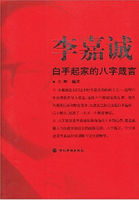ABOUT sixty years ago, when fortunes of millions had been made on the Volga with fairy-tale rapidity, Ignat Gordyeeff, a young fellow, was working as water-pumper on one of the barges of the wealthy merchant Zayev.
Built like a giant, handsome and not at all stupid, he was one of those people whom luck always follows everywhere--not because they are gifted and industrious, but rather because, having an enormous stock of energy at their command, they cannot stop to think over the choice of means when on their way toward their aims, and, excepting their own will, they know no law. Sometimes they speak of their conscience with fear, sometimes they really torture themselves struggling with it, but conscience is an unconquerable power to the faint-hearted only; the strong master it quickly and make it a slave to their desires, for they unconsciously feel that, given room and *******, conscience would fracture life. They sacrifice days to it; and if it should happen that conscience conquered their souls, they are never wrecked, even in defeat--they are just as healthy and strong under its sway as when they lived without conscience.
At the age of forty Ignat Gordyeeff was himself the owner of three steamers and ten barges. On the Volga he was respected as a rich and clever man, but was nicknamed "Frantic," because his life did not flow along a straight channel, like that of other people of his kind, but now and again, boiling up turbulently, ran out of its rut, away from gain-- the prime aim of his existence. It looked as though there were three Gordyeeffs in him, or as though there were three souls in Ignat's body. One of them, the mightiest, was only greedy, and when Ignat lived according to its commands, he was merely a man seized with untamable passion for work. This passion burned in him by day and by night, he was completely absorbed by it, and, grabbing everywhere hundreds and thousands of roubles, it seemed as if he could never have enough of the jingle and sound of money. He worked about up and down the Volga, building and fastening nets in which he caught gold: he bought up grain in the villages, floated it to Rybinsk on his barges; he plundered, cheated, sometimes not noticing it, sometimes noticing, and, triumphant, be openly laughed at by his victims; and in the senselessness of his thirst for money, he rose to the heights of poetry. But, giving up so much strength to this hunt after the rouble, he was not greedy in the narrow sense, and sometimes he even betrayed an inconceivable but sincere indifference to his property. Once, when the ice was drifting down the Volga, he stood on the shore, and, seeing that the ice was breaking his new barge, having crushed it against the bluff shore, he ejaculated:
"That's it. Again. Crush it! Now, once more! Try!""Well, Ignat," asked his friend Mayakin, coming up to him, "the ice is crushing about ten thousand out of your purse, eh?""That's nothing! I'll make another hundred. But look how the Volga is working! Eh? Fine? She can split the whole world, like curd, with a knife. Look, look! There you have my 'Boyarinya!'
She floated but once. Well, we'll have mass said for the dead."The barge was crushed into splinters. Ignat and the godfather, sitting in the tavern on the shore, drank vodka and looked out of the window, watching the fragments of the "Boyarinya" drifting down the river together with the ice.
"Are you sorry for the vessel, Ignat?" asked Mayakin.
"Why should I be sorry for it? The Volga gave it to me, and the Volga has taken it back. It did not tear off my hand.""Nevertheless."
"What--nevertheless? It is good at least that I saw how it was all done. It's a lesson for the future. But when my 'Volgar' was burned--I was really sorry--I didn't see it. How beautiful it must have looked when such a woodpile was blazing on the water in the dark night! Eh? It was an enormous steamer.""Weren't you sorry for that either?"
"For the steamer? It is true, I did feel sorry for the steamer.
But then it is mere foolishness to feel sorry! What's the use? Imight have cried; tears cannot extinguish fire. Let the steamers burn. And even though everything be burned down, I'd spit upon it! If the soul is but burning to work, everything will be erected anew. Isn't it so?""Yes," said Mayakin, smiling. "These are strong words you say.
And whoever speaks that way, even though he loses all, will nevertheless be rich."Regarding losses of thousands of roubles so philosophically, Ignat knew the value of every kopeika; he gave to the poor very seldom, and only to those that were altogether unable to work.
When a more or less healthy man asked him for alms, Ignat would say, sternly:















